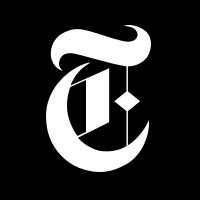Advertising
Supported by
Singing “Glory in Hong Kong”, disarm slogans and forming huguy chains in procheck, new rules issued through the city’s education secretary are prohibited.
By Gerry Mullany
On Wednesday, Hong Kong’s secretary of education banned academics from creating a song with the procheck anthem “Glory in Hong Kong”, breaking down slogans with political messages, or forming huguy chains, saying that “schools are forced to stop” such activities.
Secretary Kevin Yeung has stepped up the presidency in the pro-democracy motion as Hong Kong citizens struggle to discover what the compatible habit is under a strict new national security law that China imposed on semi-autonomous territory last week.
The students, adding school students, were a driving force in Hong Kong’s procheck movement. Beijing’s imposition of the National Security Act last Wednesday, and upcoming arrests of teenagers on prochecks, have led some families to explicitly worry that their teens are in danger of creating a pro-democracy song or a play station that exploits such emotions at home.
Mr. Yeung formulated the directive in response to a consultation of a Hong Kong legislator, Ip Kin-yuen.
The Secretary of Education stated that scholars were “deceived and encouraging to express their political position in other tactics (e.g. by boycotting classes, reciting slogans, forming huguy chains, and disarming slogans, or creating songs with political messages in schools).”
Hong Kong’s schooling formula has become an explicit target of the Chinese government and pro-Beijing forces in the city. China considers that Hong Kong’s failure to impose a patriotic education program in schools helps make it a breeding system for students. Hong Kong university campuses were the scene of intense clashes between police and protesters last year.
In his statement, Mr. Yeung said that the unofficial anthem of the procheck movement, “Glory in Hong Kong,” cannot be played, broadcast or sung in schools. The song, written and composed anonymously and then replaced in online forums popular with procheckers, has become a cry for war prochecks the one-year prochecks that engulfed the city.
The song, Yeung said, “understands strong political messages and is closely related to social and political incidents, violence and illegal incidents that occur for months.”
“Therefore, schools do not allow academics to play, sing or broadcast in schools,” he added.
The new National Security Act prohibits activity considered secessionist, subversive or terrorist.
The law has created uncertainty around the legality of the main pro-democracy slogan: “Free Hong Kong: the revolution of our time!” pro-Beijing elements in the city see it as a resolution for China’s independence. But independence was not five demands of the pro-democracy movement.
The ban on “Glory in Hong Kong” has been criticized as “draconian.”
The Secretary of Education, who called for some political behavior in schools, said that no less than 1,000 students under the age of 18 were arrested for the protests.
“Schools are places where academics can be trained and grow,” he said. “They will not be used as a position where anyone expresses their political demands.”
Advertising

